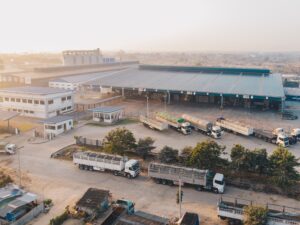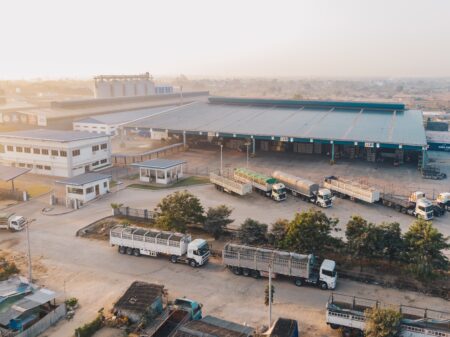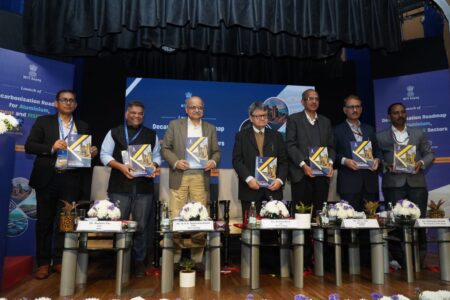Explore the transformative landscape of automobile logistics with Kajal Bagchi, CEO, Caparo Logistics. Discover challenges, solutions, and future trends as Bagchi shares insights on digitalization, sustainability, and technological advancements shaping the industry.
Recent years have witnessed a profound transformation in the automobile logistics landscape. In an exclusive interview, Kajal Bagchi, CEO and Director, Caparo Logistics, provides insights into the industry’s evolution, challenges, and future trends.

Efficiency and punctuality in automobile deliveries are guaranteed through meticulous strategies
Evolution
Bagchi highlights the pivotal role of digitalization and automation in revolutionising the industry. Supply chain visibility, transparency, and last-mile delivery solutions have become paramount. Globalisation and trade complexities are addressed through advanced tracking technology, offering real-time insights and predictive analytics. This strategic integration of technologies underscores a commitment to staying agile and responsive in the evolving landscape of automobile logistics.
Key challenges
Automobile logistics companies face diverse challenges, including global supply chain complexity, Just-In-Time (JIT) production models, inventory management, quality control, regulatory compliance, and environmental sustainability. These intricate challenges necessitate strategic solutions for sustained efficiency and excellence in the demanding automotive logistics sector.
Timely deliveries
Efficiency and punctuality in automobile deliveries are guaranteed through meticulous strategies. A strong transport network, real-time visibility, effective route planning, Just-In-Time (JIT) coordination, and streamlined process optimization collectively contribute to the success of operations. This integrated approach ensures seamless and timely delivery of automobiles, reflecting a commitment to excellence in logistics management.
Technological advancements
Technological advancements are central to modernising operations in the automobile logistics sector. Bagchi emphasises the transformative influence of advanced telematics, GPS, digital supply chain platforms, IoT, autonomous and electric vehicles, blockchain technology, AR and VR applications, and cloud-based solutions. These innovations collectively reshape and revolutionise the automobile logistics landscape, highlighting the industry’s commitment to staying at the forefront of technological advancements.
Future trends
Bagchi anticipates pivotal trends in the future of automobile logistics, foreseeing a shift towards electrification, sustainable transportation, and the ascendancy of autonomous and connected vehicles. Additionally, she highlights the strategic adoption of reshoring and nearshoring, emphasising a personalised customer experience, and the integration of AI-powered optimisation for enhanced efficiency. Bagchi’s insights offer a holistic view of the evolving automobile logistics sector, underscoring the industry’s transformation through technology. In this dynamic landscape, sustainability, advanced analytics, and customer-centric approaches stand out as imperative factors, signalling the way forward for navigating the complex and ever-changing future of automobile logistics.











